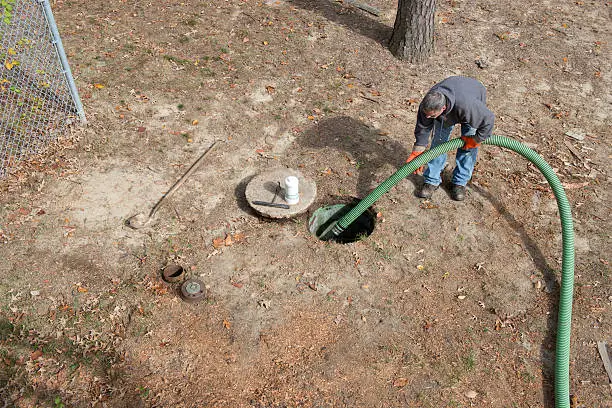Understanding Septic Tank Functionality
Septic tanks are essential to waste management, particularly in rural locations without access to municipal sewer systems. The tank, drain field, and surrounding soil all filter and break down waste in a septic system. These tanks receive wastewater from bathrooms, kitchens, and laundry drains, separating organic matter into effluent and sludge. The effluent is dispersed into the soil, where natural processes biologically treat it. This setup manages waste efficiently and protects local groundwater supplies, maintaining health and environmental standards.
Signs of Septic Tank Problems
Awareness of the warning indications of septic tank issues can prevent significant financial and environmental damage. For instance, foul odors, water pooling around the drain field, or slow drainage signal a septic system under stress. Such problems demand immediate attention. For residents and businesses in Citra, FL, services like grease trap pumping citra fl can prove essential, especially in mitigating the issues caused by fats and oils in kitchen drains. Regular inspection and maintenance routines act like check-ups for your septic system, catching minor problems before they burgeon into major ones. System efficiency is closely tied to addressing these signs early.
Staying vigilant about potential septic system issues by recognizing these symptoms can significantly reduce the risks of substantial repairs or system failures.
Common Septic Tank Issues
Several common issues can plague septic tanks, with clogged pipes being the most frequent. These are often caused by flushing inappropriate items down the drain, like non-biodegradable products or cooking oils. Such blockages can severely impact the efficiency of the entire system. Overflow is another prevalent issue, often resulting from not having the tank pumped at recommended intervals or due to leaks within the system itself.
Managing what goes into your septic system is crucial for maintaining its operation. The EPA’s guidelines on septic maintenance suggest adhering to waste management best practices as a preventative measure against blockages and overflows. This advice can help homeowners maintain their systems’ efficiency and longevity.
Why Hire a Professional Contractor?
Professional contractors offer invaluable expertise in diagnosing and resolving issues when dealing with septic systems. They bring specialized equipment tailored for the job, often superior to DIY tools. Combined with their expertise, this specialized equipment ensures a thorough inspection and repair process, reducing future system failure risks.
Professional services ensure comprehensive care, from ensuring compliance with environmental regulations to tailoring solutions to specific septic system issues. As emphasized by HUD User’s insights, the role of trained professionals in maintaining septic systems is crucial for system integrity and longevity, safeguarding against environmental contamination.
Long-term Benefits of Regular Maintenance
The mantra of septic system care is ‘regular maintenance.’ A consistent maintenance schedule can significantly elongate the lifespan of your septic system. It also helps prevent environmental contamination—a personal and public health priority. Moreover, by adhering to routine maintenance schedules, homeowners save money by avoiding the high costs of severe system failures and overhauls.
Regular maintenance involves timely inspections and pumping, ensuring systems run smoothly and efficiently. This, in turn, protects the local ecology from potential hazards posed by untreated wastewater and sustains a clean and safe environment for everyone.
Steps to Prevent Septic Tank Issues
- Regular Inspections: By being aware of the warning indications of septic tank issues, significant financial and environmental damage can be avoided.
- Conserving Water: Spread laundry over several days to avoid overwhelming the system. Fix leaking faucets promptly.
- Waste Management: Avoid flushing non-biodegradable items. Even everyday items like tissue paper or cotton swabs can create significant blockages over time.
Combined with consistent maintenance, these measures form a robust strategy against septic problems, ensuring long-term functionality and efficiency.
DIY Maintenance Tips for Homeowners
Preventative maintenance can increase your septic system’s lifespan. Homeowners can introduce natural bacteria additives that are available in stores, which can aid in breaking down waste more effectively. Monitoring your household’s water usage and maintaining efficient water use also goes beyond protecting the system; it conserves resources.
Another critical DIY step is staying alert for early warning signs, such as strange odors or slow drains. Early intervention can prevent more challenging and costly problems from developing later.
Choosing the Right Contractor
It is paramount to select a competent contractor to handle your septic needs. Before choosing, research potential contractors thoroughly by reviewing their service contracts, warranty options, and past customer experiences. Seek reviews and recommendations to get a sense of their reputation.
Inquiries about their experience, qualifications, and approach to addressing unique septic challenges can provide insight into their reliability and suitability. A good fit not only ensures the health of your septic system but also offers peace of mind through professional assurance.



